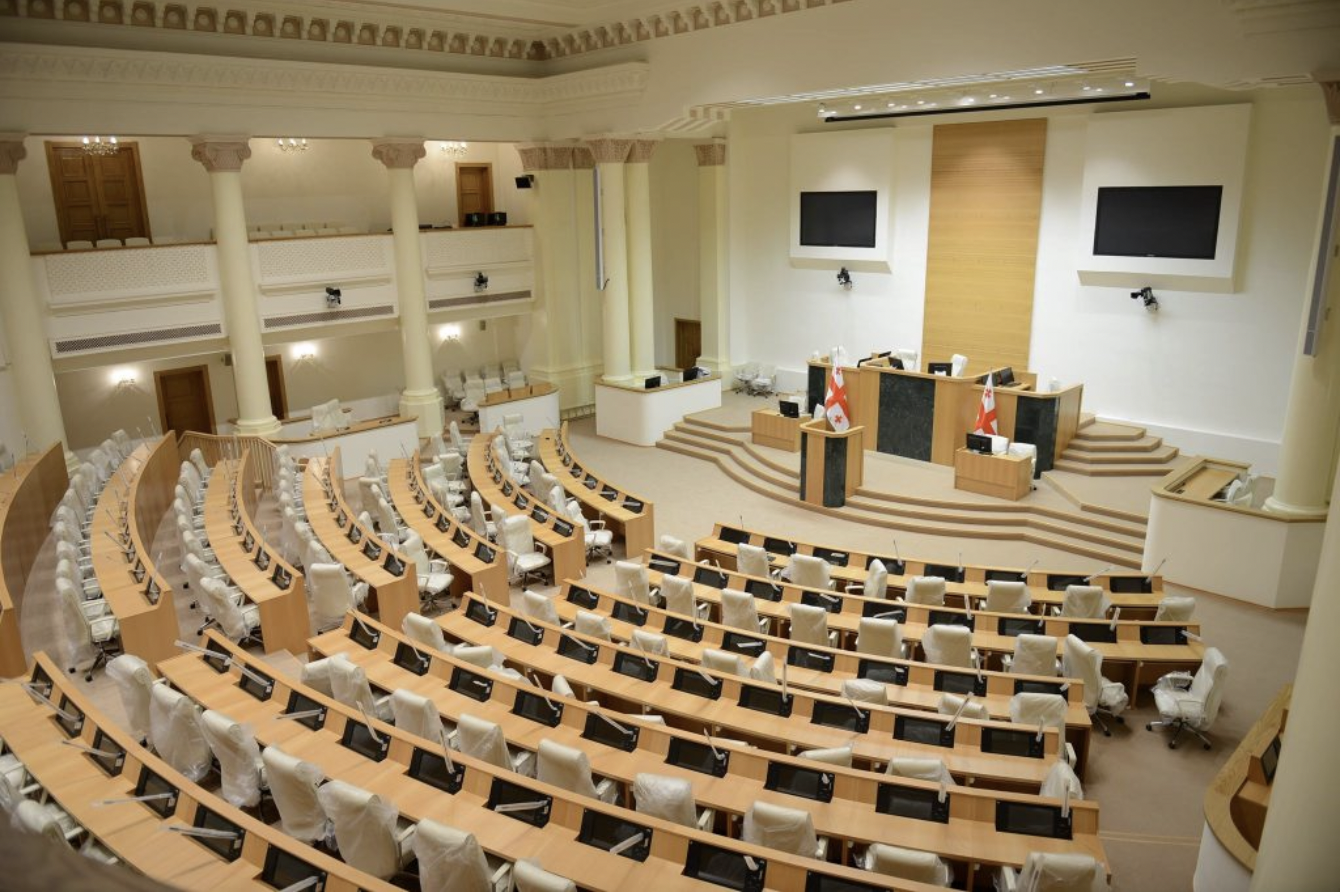
The Parliament of Georgia must immediately resume its session to fulfill the EU conditions
Today, the process of Georgia's accession to the European Union is approaching a turning point. A window has opened for Georgia, which gives us a unique opportunity to get closer to Europe; however, so far, the Georgian government has fulfilled only the minimum requirements. Unlike Ukraine and Moldova, Georgia did not receive candidate status. However, the window of opportunity for Georgia is not yet closed. The European Commission has made a political decision that the issue of granting Georgia the status of a candidate will again be put on the EU agenda in six months.
Georgia has very little time left to successfully seize the opportunity, which obliges us to take specific steps to achieve the goal of European integration. In this regard, any attempt undertaken by the ruling authorities to diminish the importance of the country's European integration or to raise issues that do not meet the twelve requirements set by the European Union contradicts the will of the Georgian people and the Constitution of Georgia.
Responsibility for the implementation of the twelve conditions defined by the European Union lies with all three branches of government. The role of the Parliament is of particular importance, as it is obligated to develop a relevant regulatory framework and ensure that the government oversees the implementation of the conditions.
On 24 June, the Parliament of Georgia completed its work within the regular (plenary) session and for the first time during the current convocation did not request to hold an extraordinary session. In the current circumstances, when there is less and less time left to fulfill the conditions set by the European Union, the passivity of the Georgian Parliament is unacceptable.
We, the signatory organizations, deem it important that the Parliament of Georgia must resume its session to fulfill the twelve conditions and take specific steps. Thus, an extraordinary session of Parliament should be convened immediately with an agenda that must at least include the following promptly discussible matters:
- Completion of the electoral system reform, a constitutional amendment suspended by the Parliament envisages the transition to a fully proportional electoral system with a 2% electoral threshold. The constitutional amendments earned multi-party support and subsequently were adopted in the first reading, which means that the most difficult stage of the procedure prescribed by law for constitutional amendments has already been completed; with the remaining second and third readings, the amendments can be adopted by the Parliament within a few days at an extraordinary session.
- Setting up the Central Election Commission. The term of office of the CEC Chairperson and two members expires in August 2022. The Parliament must elect them by common (and not exclusive) consensus among the parliamentary forces within two weeks.
- Establishment of an anti-corruption agency. The bill, initiated on 25 January 2022, received broad support from the parliamentary opposition and civil society; The resolution adopted by the European Parliament on 14 November 2018 calls on Georgia to establish an independent anti-corruption body to effectively investigate cases of corruption in the high echelons of power. The initiative was discussed by one of the mandatory committees and suspended by Parliament. The Parliament can finalize the process of setting up an anti-corruption agency at an extraordinary session within a several-day period.
- Appointing five members of the High Council of Justice and changing the decision-making rule in the Council of Justice based on the two-thirds principle. All five members of the Council of Justice shall be elected by Parliament based on a consensus reached among political forces. In addition, special attention must be paid to the bill initiated in July 2021 amending the Organic Law on Common Courts with the aim of minimizing corporatism and increasing the involvement of non-judicial members in the work of the Council of Justice. At an extraordinary session, the Parliament has the right to consider and adopt legislative amendments within a few days.
By considering the above issues, the Parliament can fulfill the requirements related to the implementation of specific reforms from among the twelve conditions set by the European Union, as well as take steps towards the demand for depolarization and de-oligarchization.
Parliament should place a priority on the ambitious reform of the judiciary and prepare working plan for the upcoming Fall Session of the Parliament in order to implement all conditions provided for in the twelve requirements.
Therefore, we call on the parliamentary majority and the opposition to:
- Appeal to the President with a request to convene an extraordinary session with the matters mentioned above on the agenda and start to work in the Parliament. The vote of 38 deputies is sufficient to convene an extraordinary session of the Parliament.
We call on the President of Georgia to:
- Immediately launch the procedure for electing the CEC Chairperson and two candidate members and ensure the broad involvement in the process, with sufficient time in advance before the start of the procedure, no later than 15 July;
- When planning the selection process, take into account all comments made by the organizations that participated in and observed the last two elections of the CEC Chairperson and members.
Signatories:
- Democracy Index – Georgia
- Democracy Research Institute (DRI)
- Civic Idea
- European-Georgian Institute (EGI)
- Georgian Court Watch
- World Experience for Georgia (WEG)
